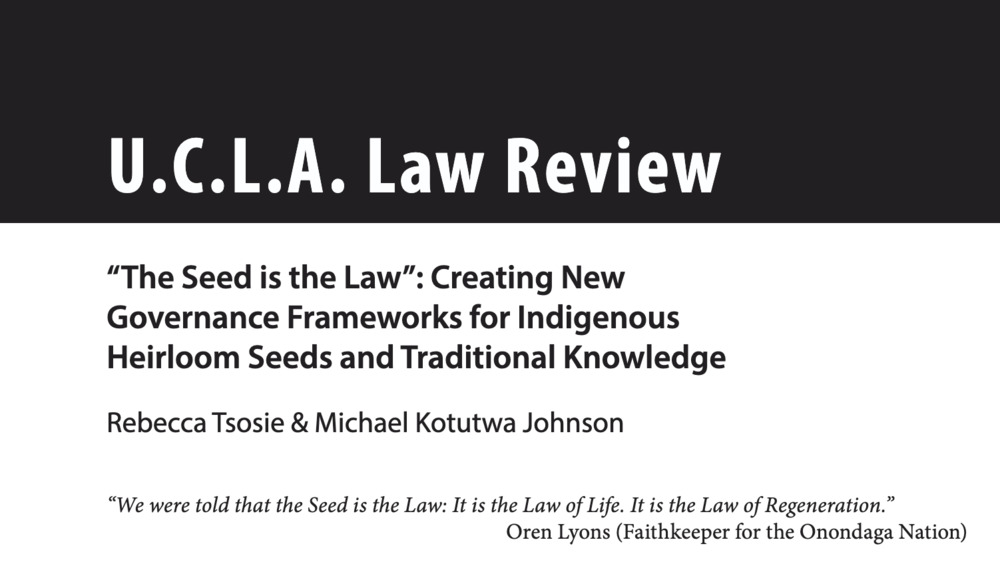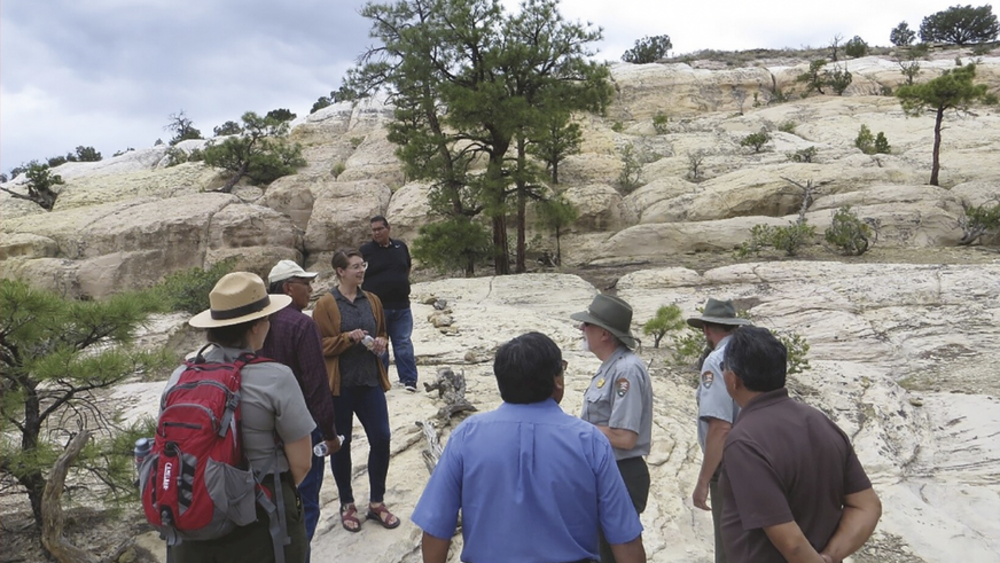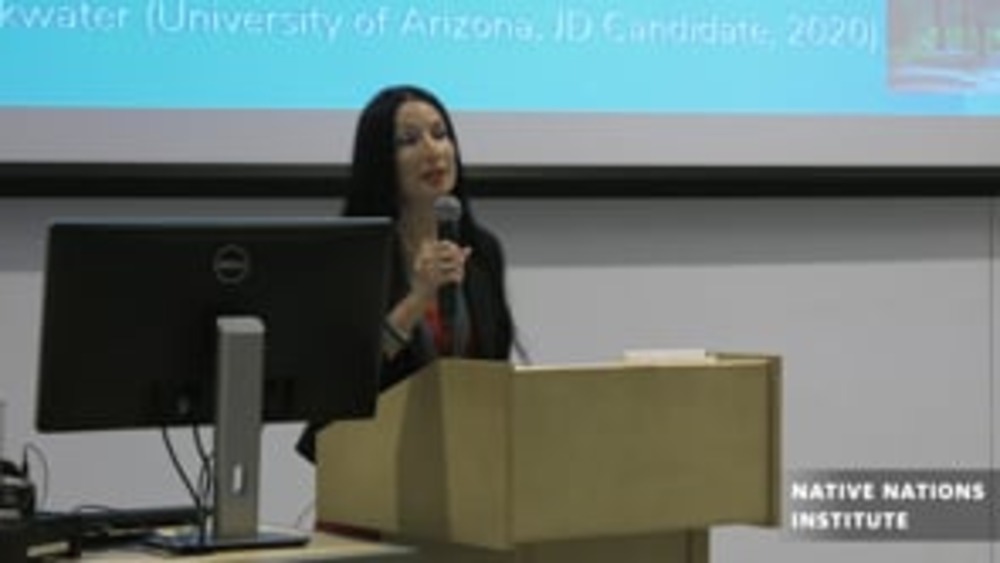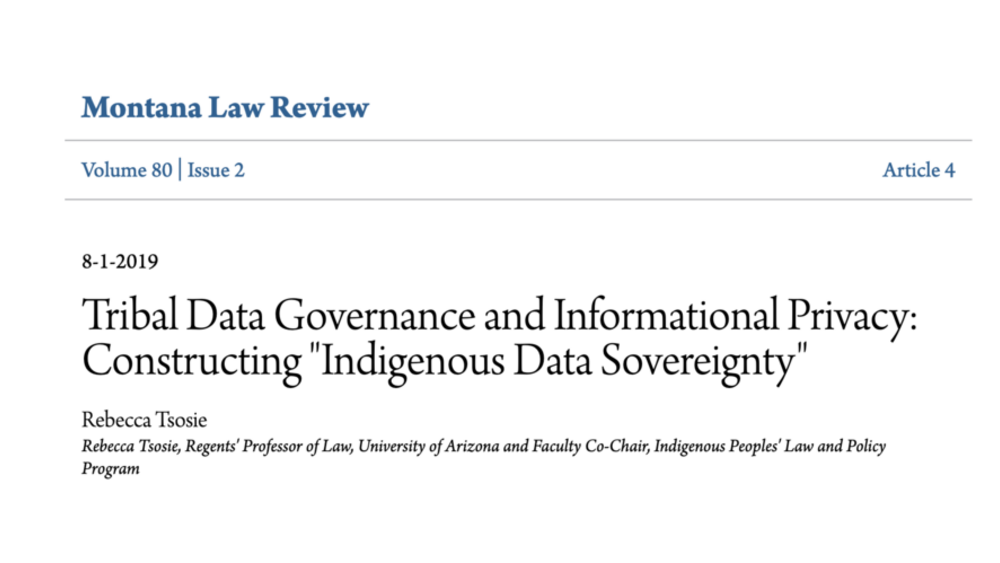Indigenous Governance Database
Rebecca Tsosie

"The Seed is the Law": Creating New Governance Frameworks for Indigenous Heirloom Seeds and Traditional Knowledge
The United Nations World Intellectual Property Organization (WIPO) held a diplomatic conference in May 2024 where participants adopted a historic new treaty on Intellectual Property, Genetic Resources and Associated Traditional Knowledge. The treaty is intended to improve the patent system by…

Archaeology and Social Justice in Native America
Over the past 20 years, collaboration has become an essential aspect of archaeological practice in North America. In paying increased attention to the voices of descendant and local communities, archaeologists have become aware of the persistent injustices these often marginalized groups face.…

Rebecca Tsosie: Indigenous Sustainability and Resilience to Climate Extremes
The School of Geography & Development presented the “My Arizona” Lecture of Prof. Rebecca Tsosie, Regents Professor of Law at Univeristy of Arizona on Friday, November 1, 2019. Her lecture, "Indigenous Sustainability and Resilience to Climate Extremes: Traditional…

Tribal Data Governance and Informational Privacy: Constructing "Indigenous Data Sovereignty"
There is a growing movement among Indigenous peoples to assert aright to “Indigenous data sovereignty,” and yet, the term “data sovereignty” is not widely understood. What does it mean to control the collection, useand management of information in an era of “Big Data,” in which digital technology…
